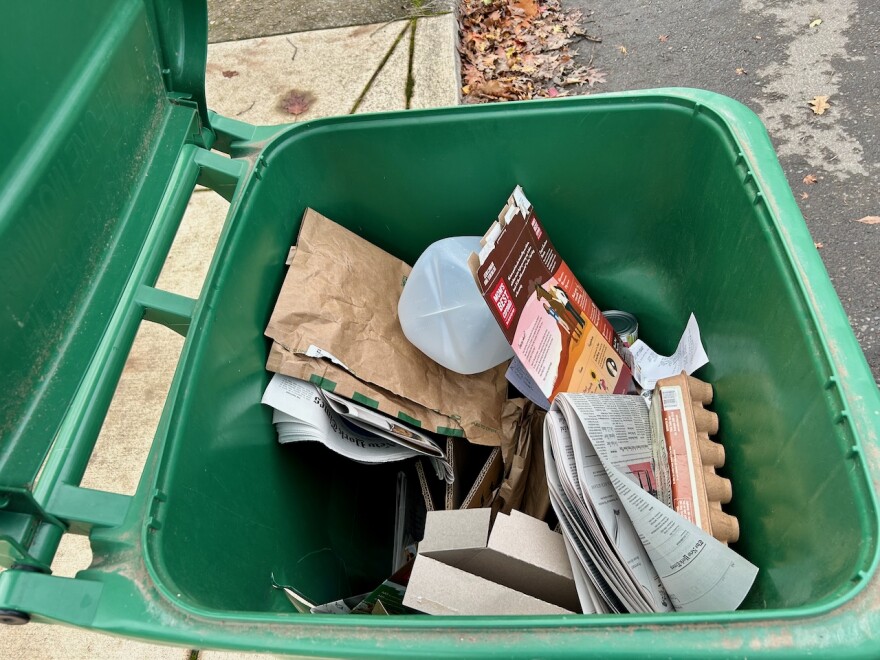Oregon’s Recycling Modernization Act has been in place for more than three months, and so far, both consumers and recycling centers seem pleased.
For the most part, the correct containers are showing up in the county’s mixed recycling, said Kelly Bell, the Master Recycler Coordinator with Lane County Waste Management. But there’s one material Bell said is a big offender, citing a survey from a year ago. The survey of 1,029 Oregon residents was conducted by the producer responsibility organization, or PRO, that manages and distributes the funds paid by packaging producers as part of the law.
“43% of people surveyed believe that their recycling program accepts bagged recycling," said Bell. "I'm pretty confident that zero programs in Oregon accept bagged recycling."
Bell said plastic bags gum up sorting machinery and paper bags keep items from being separated correctly. The best practice is to put everything together, loose, in the bin.
People who live in smaller communities, where curbside pickup doesn’t yet conform to the new statewide recycling list, can bring items such as yogurt tubs and aseptic cartons to a Lane County transfer station.
Rural communities will be the first to get funding for equipment upgrades, according to Bell. In fact, she said, a lift-arm truck is on order for Cottage Grove, so the hauler there can pick up rolling carts and participate in residential recycling.
To cover the cost of the program, companies that sell products in Oregon pay new packaging fees. Businesses that earn $5 million or less in gross revenue are exempt.
Soon after the law went into effect in July, the National Association of Wholesaler-Distributors sued the Oregon Department of Environmental Quality, and other parties, claiming the Plastic Pollution and Recycling Modernization Act isn’t constitutional. The association claims producers must register with the PRO, the Circular Action Alliance, which has non-public, subjective methods of assessing fees. The lawsuit is pending in the U.S. District Court in Portland.
Bell is confident the Oregon law will withstand a legal challenge.
“I think upwards of 10 states are doing producer responsibility legislation, either it's already been passed or it's in the works,” she said. “It's been going on in Europe for a long time and also in Canada, so there's a lot of precedent for what we're trying to do.”





